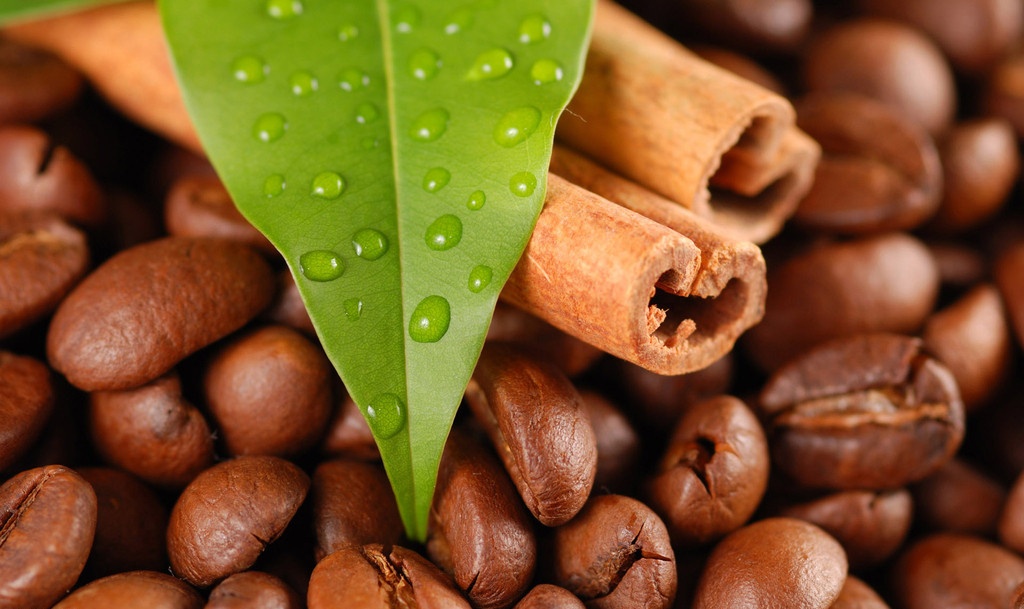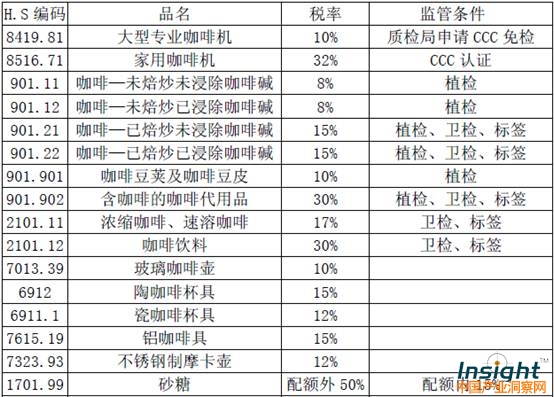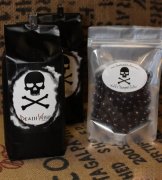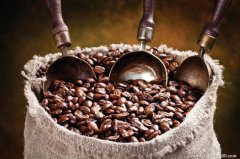Analysis of the policy of China's import and export coffee industry the process of coffee bean import

According to the relevant laws of China, coffee beans and their peripheral products (except sugar) are free trade goods. The relevant policies and regulations related to China's import of coffee beans mainly include:
(1) Import tax rate and regulatory conditions
Related to its import tax rate and regulatory conditions. Professional coffee machine (boiler above 10 liters / excluding 10 liters) can apply for 3C exemption. The label belongs to the scope of commodity inspection, which stipulates that from March 1, 2001, all import and export food must be submitted for inspection with the Import and Export Food label examination Certificate.
The import of coffee beans also requires a customs clearance form for incoming goods. The customs clearance form of entry goods is the certificate of the state's permission to enter the country for the goods subject to entry inspection and quarantine. Since January 1, 2000, for the goods carrying out entry inspection and quarantine, the Customs clearance form for entry goods has been officially launched and a special seal for inspection and quarantine has been affixed to the customs form, among which coffee beans are listed.
(2) the process of importing coffee beans
Customs clearance procedures, also known as customs declaration procedures, refers to exporters or importers declare export or import to the customs, accept customs supervision and inspection, and perform the formalities prescribed by the customs. When the customs clearance procedures are completed and the taxes and other fees payable are settled, the goods can be cleared through customs with the consent of the customs. Customs clearance procedures usually include declaration, inspection, taxation, release and clearance.
Table 1: import tax rate and regulatory conditions of coffee beans

With regard to the policy of the coffee industry, the editor believes that more attention must be paid to dealers and manufacturers who need foreign imported coffee raw materials. After all, the industry policy will continue to improve with the progress of society. To find business opportunities in the overseas trade market game, we must be forward-looking. With the huge potential of the domestic market in the future, imported coffee raw materials will certainly fluctuate. How to see whether the coffee products produced by consumers' demand combined with imported raw materials will sprout viable domestic coffee brands? it is necessary to analyze the policies of the coffee industry.
Important Notice :
前街咖啡 FrontStreet Coffee has moved to new addredd:
FrontStreet Coffee Address: 315,Donghua East Road,GuangZhou
Tel:020 38364473
- Prev

I can't sleep for several nights after a cup! Do you want to try the most refreshing coffee in history?
Coffee drinkers always have their own preferences. Some people prefer bitter taste, like to drink black coffee or Zhai coffee, in fact, can reach the level of drinking black coffee is relatively high. Some people prefer sweet taste with milk and sugar and are infatuated with lattes. There is also a small group of people constantly trying a variety of fresh coffee flavors, using a variety of heavy black coffee to vent.
- Next

Interpretation of the characteristics of different kinds of coffee beans Coffee is a product of the tropics
Coffee is a product of the tropics. You may not believe that the best coffee producer in the world is in Yunnan, China.
Related
- Guji coffee producing area of Guji, Ethiopia: Humbela, Shakiso, Wulaga
- What is the most expensive variety of Qiloso in BOP multi-variety group?
- How to store the coffee beans bought home?
- Why are Yemeni coffee beans so rare now?
- Ethiopian Sidamo all Red Fruit Sun Sun Santa Vini Coffee beans
- SOE is mostly sour? What does it mean? Is it a single bean? what's the difference between it and Italian blending?
- Is Italian coffee beans suitable for making hand-brewed coffee?
- How to choose coffee beans when making cold coffee? What kind of coffee beans are suitable for making cold coffee?
- Just entered the pit to make coffee, what kind of coffee beans should be chosen?
- Can only Japan buy real Blue Mountain Coffee? What are authentic Jamaican Blue Mountain coffee beans?

